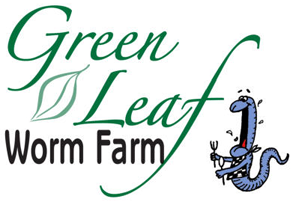SUPPLIES
• Plastic bucket or bin with drainage holes in the bottom and top
• Shredded paper
• 1/8" hardware cloth
• Peat Moss
• Worms
Feeding:
Night crawlers come to the surface to feed at night. Feed them anything but meats, dairy products and fatty food, no avocados, nothing too acidic. They love watermelon, cardboard, corn meal, veggie scraps. Wait until they eat what they have before adding more food. They have a small mouth so they digest finely chopped wet food.
Sifting:
Take out worms by sifting through 1/8" hardware cloth and change bedding every 3 weeks. Save the castings for the garden.
Tips:
Be sure to keep it dark, that's why they call them night crawlers. Their ideal temperature is 75 -80 degrees to produce castings. Also keep them damp but well drained. You can watch the eggs and baby worms grow and use any extra worms for fishing or in the garden. Always protect them from ants, flatworms, snakes by keeping them in worm bins.
1/8" Hardware Cloth Available Through Amazon
Tips & Tricks
• Plant your seedlings directly in worm castings to speed germination
• Dip the whole root ball of a potted plant into worm tea before transplanting to provide a powerful boost
• Spray Worm Tea over your entire lawn to keep out bugs and nourish the yard
• Worm tea has even been known to heal scars and open wounds on animals
• Spread a thin layer of worm castings through each new layer of compost to make richer earth
• Roses, trees shrubs and berries or newly transplanted plants: Mix 1 part earthworm castings to 3 parts soil.
Surround newly dug hole with mixture. Spread roots over a mound of mix in the hole and cover
• Live earthworms make a great fish food or a supplement for lizards and snakes. They are very good food for
young animals since the earthworm's body is soft and easy to digest and is a good source of protein
• Earthworms make a good food for pond fish like trout, tilapia and catfish
• Dip the whole root ball of a potted plant into worm tea before transplanting to provide a powerful boost
• Spray Worm Tea over your entire lawn to keep out bugs and nourish the yard
• Worm tea has even been known to heal scars and open wounds on animals
• Spread a thin layer of worm castings through each new layer of compost to make richer earth
• Roses, trees shrubs and berries or newly transplanted plants: Mix 1 part earthworm castings to 3 parts soil.
Surround newly dug hole with mixture. Spread roots over a mound of mix in the hole and cover
• Live earthworms make a great fish food or a supplement for lizards and snakes. They are very good food for
young animals since the earthworm's body is soft and easy to digest and is a good source of protein
• Earthworms make a good food for pond fish like trout, tilapia and catfish
